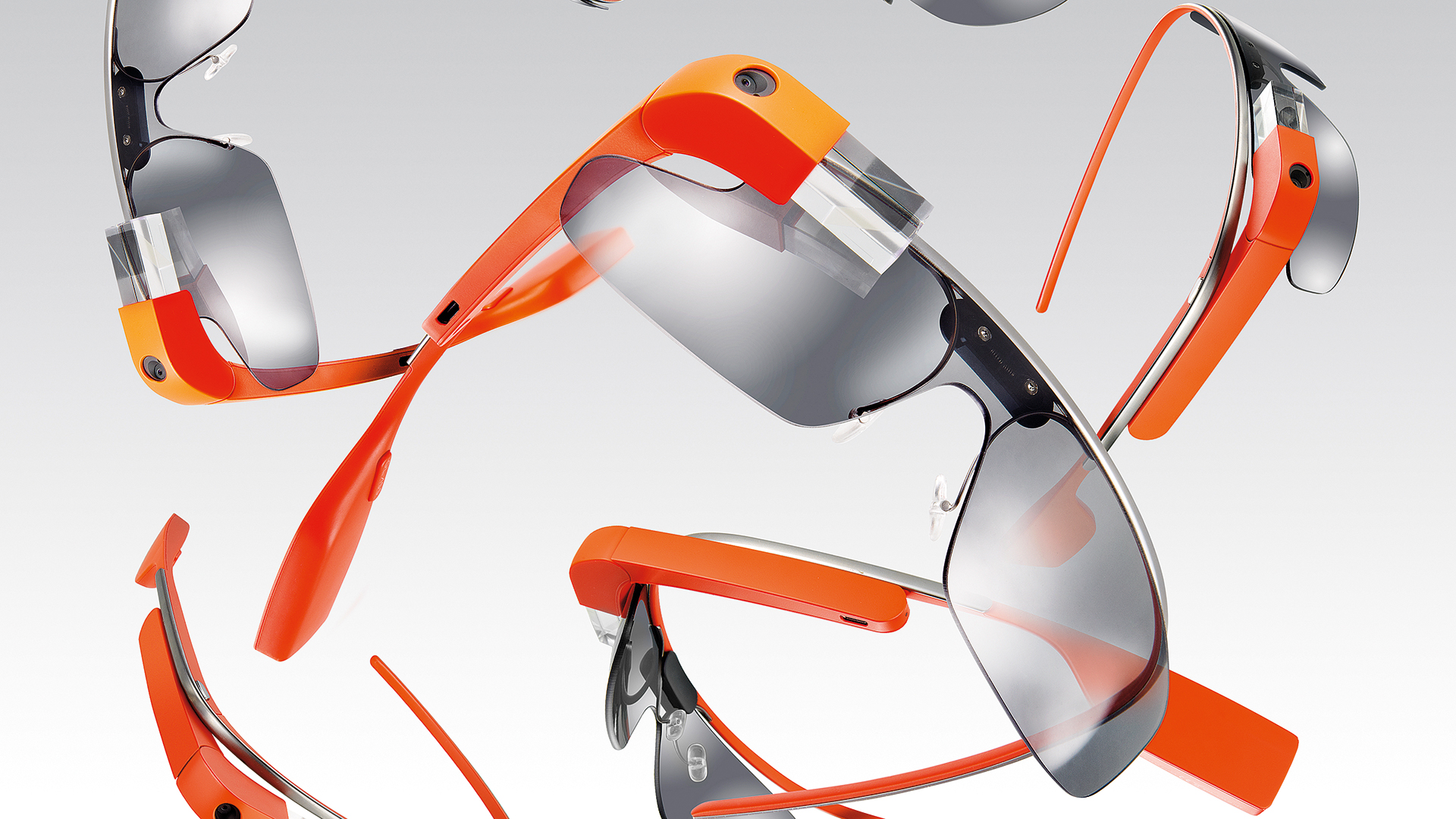What if… Google Glass had taken off?
To celebrate T3's 25th anniversary, we're looking at the tech world that might have been, including how the wearables market as a whole may have flourished more if Google Glass hadn't embarrassed on their debut

In the early 2010s, giddy from the growth of fitness upstarts like Fitbit and burgeoning smartwatch brands like Pebble, many of us in the tech space felt wearables’ meteoric ascendence was pretty much inevitable. A new dawn was coming that would untether us from our phones: a wave of smart contact lenses, gesture-tracking bracelets and voice-chat earrings would mean we’d soon be able to kiss those pocket-hogging bricks goodbye.
Then came Google Glass. Ludicrous as it seems now, a lot of us bought into the hype. Hard. When you’re a giant manchild, raised on a diet of sci-fi films and FPS gaming, very little seems cooler than your own heads-up display. With Google putting its R&D heft behind AR glasses, this dream felt like it was nearing reality. And the case for it seemed obvious: directions displayed in your field of vision meant getting lost would be no more, while the ability to overlay info over the things we saw would add a whole new contextual depth to the real world.
So picture my response when I first slapped on a pair. Far from being Gordon Freeman in my own Half-Life, I was reduced to staring at a low-res reflected LCD out of the corner of my eye. And I didn’t look like any of my sci-fi heroes. Forget Tony Stark or Spider Jerusalem: even Geordi La Forge would have mocked my clunky eyewear.
And consumer feedback was even less favourable. In such hipster-phobic times, conspicuously strapping £1.5K’s worth of tech to your face was seen as the behaviour of an irredeemable Glasshole. Meanwhile, the idea of millions of enthusiastic voyeurs equipped with an all-seeing camera lens made many people queasy. All in all, it was clear people weren’t willing to sacrifice their privacy or dignity for the ability to read scraps of text shorter than a tweet.
Thanks to the excoriation Glass received, Google gradually backed off its consumer focus for the device in 2015, instead concentrating on its benefits for business. These Enterprise editions – released in 2017 and 2019 – received a much more positive response. But what would have happened if Glass hadn’t received such a savaging?
Get 3 issues of T3 for just £3 today!
Get every new issue of the UK's best-selling gadget magazine delivered direct to your door before it even hits the shops! And for a bargain price: get 3 issues for just £3 in our Autumn sale when you buy before 17th October at 10am (BST).
Had it not been hyped quite so much, we can imagine the pushback to Glass might not have been quite so fierce. Let’s say the first Glass is rightly positioned as a proof of concept: while the tech isn’t quite there and the interface clunky, Google finds the smattering of initial interest encouraging and commits to further development. It also heeds some of the concerns around privacy that have emerged, nixing the camera functionality and refocusing more on delivering augmented reality experiences.
No longer haunted by the spectre of Glass’ high-profile failure, there is much less wariness in the industry about further experimentation. Keen not to be outdone, Samsung quickly enters the race, applying its recent research into flexible displays to the problem. Both corporations continue to tweak their formula, picking up transparent display expertise from LG along the way and, by 2021, smartglasses reach a similar level of maturity as folding phones. And while consumers have been slow to adopt the tech so far, rumours have it that the upcoming Apple Event is the one we need to watch…
Get all the latest news, reviews, deals and buying guides on gorgeous tech, home and active products from the T3 experts
Not only that but without the bucket of ice water that Glass threw over the wearables industry, enthusiasm for new devices has hit record heights. Smartwatches have risen to the same peak as in reality, offering incredible wrist-based health and fitness tracking, but new players are eyeing up a slice of the market. Nike has partnered up with Fitbit to embed gait-analysis tech in its latest running shoes, while brands like Gucci and Chanel have begun experimenting with trackers and haptic feedback in their jewellery. Far from being a cautionary tale, Glass’s debut is looked back on as a turning point for the sector.
